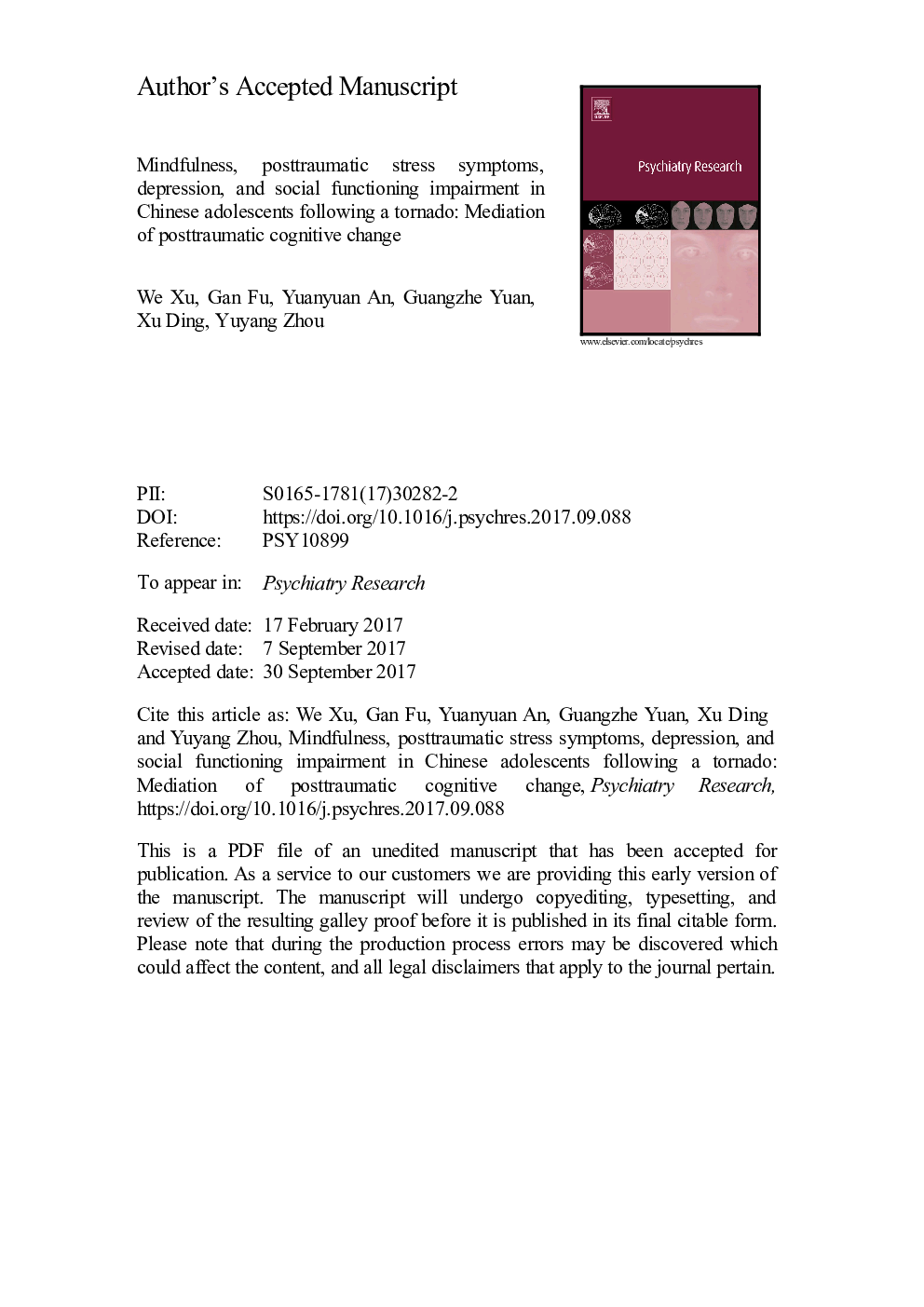| Article ID | Journal | Published Year | Pages | File Type |
|---|---|---|---|---|
| 6812013 | Psychiatry Research | 2018 | 18 Pages |
Abstract
Previous studies have shown that mindfulness is associated with less negative traumatic outcomes in people who experienced traumatic events. The present study investigated how mindfulness is related to posttraumatic stress disorders (PTSD) symptoms, depression and social functioning impairment in Chinese traumatized adolescents by considering the role of posttraumatic cognitive change (PCC). A total of 247 Chinese adolescents, who had experienced a severe tornado six months prior to this study, were recruited to complete a series of questionnaires. Results showed that the proposed model fitted the data very well (Ï2 = 16.200, df = 8, Ï2/df = 2.025, GFI = 0.983, CFI = 0.991, TLI = 0.976, RMSEA = 0.063). Further analyses revealed that PCC mediated the relation between dispositional mindfulness and all negative posttraumatic outcomes (including PTSD symptoms, depression and social functioning impairment). Limitations, clinical implications, and directions for future research were discussed.
Keywords
Related Topics
Life Sciences
Neuroscience
Biological Psychiatry
Authors
Wei Xu, Gan Fu, Yuanyuan An, Guangzhe Yuan, Xu Ding, Yuyang Zhou,
